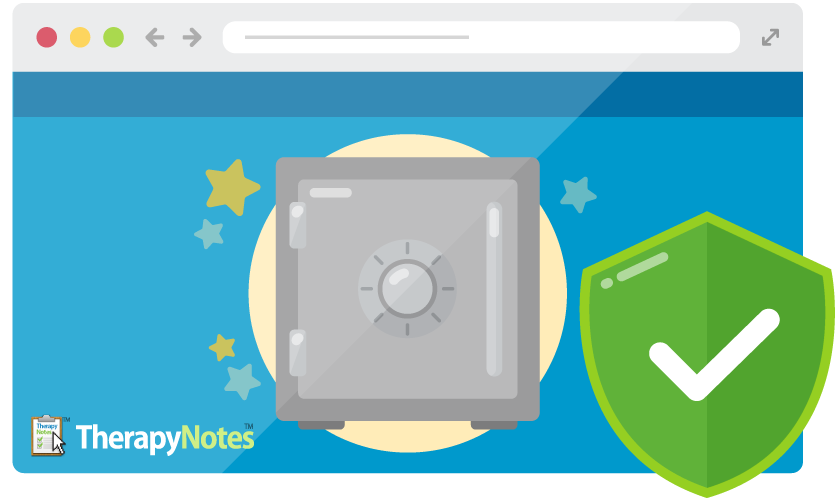Supporting the Mental Health of Your Employees Through Benefits
By Maureen Werrbach, LCPC on January 20, 2021

Supporting your employees is one of the most important things you can do as a group practice owner. A good rule of thumb is to check the benefits your group practice offers each year to see what is being used, valued or unutilized, and if there are any new benefits that your team wants or needs. I've really been thinking a lot about how I'm supporting the mental health of the folks who work at my practice this year. 2020 was a hard year for everyone, but for therapists especially—we are the ones holding space for so much pain and suffering right now. We talk about the importance of mental health with our clients, and it’s important that we take our own advice! In reflecting on this, I think that it’s important for us as business owners to look at how we are supporting the mental health of the employees who show up each day, as well as our communities.
Let’s go over a few important things to think about when talking about the benefits that support the mental health of your team:
- Your budget: Of course, certain benefits cost more than others. Knowing your budget will help you decide which benefits are viable options for your group practice. From health insurance to EAPs to mental health competitions, you’ll find options ranging from high cost to free.
- Your team’s needs (don’t assume to know them): What you think people value or need, and what they actually value or need, are two different things. Sometimes asking them what they need will reveal something you hadn’t thought of.
- Your workplace culture and values: Depending on what's important in your business, there might be certain mental health benefits that call to you more or that will be more in line with your culture and values. At my group practice, we're very community-focused and our practice has a family feel. We like to feel connected and collaborate with one another. Because of that, a lot of the benefits that we are offering in our Mental Health Initiative are collaboration and interconnection oriented. Therefore support groups or mental health competitions are right in line with our workplace culture and values.
Once you know your budget, your team’s needs and what your workplace values are, focus on researching benefit options. Below are a few to get you started:
- Monthly self-care competitions and prizes. Our practice loves to connect with one another, so we have a whole set of mental health supporting games that we play once per month. For example, this month is full card bingo. It's a self-care bingo card, where each box is some self-care related item, whether it's "slept eight hours," "read a book," "went out for a walk in nature," "grabbed a cup of coffee," or something along those lines. Whoever fills that card out first wins the prize. Challenges or games likes who can drink 8 glasses of water a day most in a month, sleep 7-9 hours a night most in a month, volunteer challenges, or book reading competitions are all fun and relatively inexpensive ways to support mental health and engage in self care.
- Creative self-care meetups (in person or virtually). Everyone has things that they do in their personal life to support their own self-care. What better way to do self care than to show it to your colleagues and teach them! In our practice, we have someone who makes candles, someone who's a yoga instructor, an artist, and a photographer. To support connection (and self care), you can have one person host a meetup and showcase the thing that they love to do, that creative thing that promotes their self care practice, and share that with the rest of the team.
- A BIPOC support group. Every month we have a support group for our team members who identify as BIPOC. This group is a safe space for BIPOC team members to be able to process work and life issues, practice mindfulness, and receive group support.
- Coffee talk sessions (general support groups). This can be peer led or leadership led as a place to practice vulnerability. Team members can ask for support and provide support to others. It’s focus is not about work, rather about the humans in the room and their struggles, goals, and personal growth edges.
- EAP sessions. Our practice partnered with a local EAP company, and every staff member has six EAP sessions that are covered every year per presenting issue. This is a great way to provide mental health support outside of the office, not only to employees, but their family members as well.
I encourage you to look at what you're doing to promote the mental health of your team. It's really important that we're looking at how we can prevent or reduce stress and burnout in the workplace, and how we can promote mental health through leadership and policies in our business.
* The content of this post is intended to serve as general advice and information. It is not to be taken as legal advice and may not account for all rules and regulations in every jurisdiction. For legal advice, please contact an attorney.
About Maureen Werrbach, LCPC
Get more content like this, delivered right to your inbox. Subscribe to our newsletter.
More Content You'll Enjoy

Converting Clients

Building a Leadership Team
